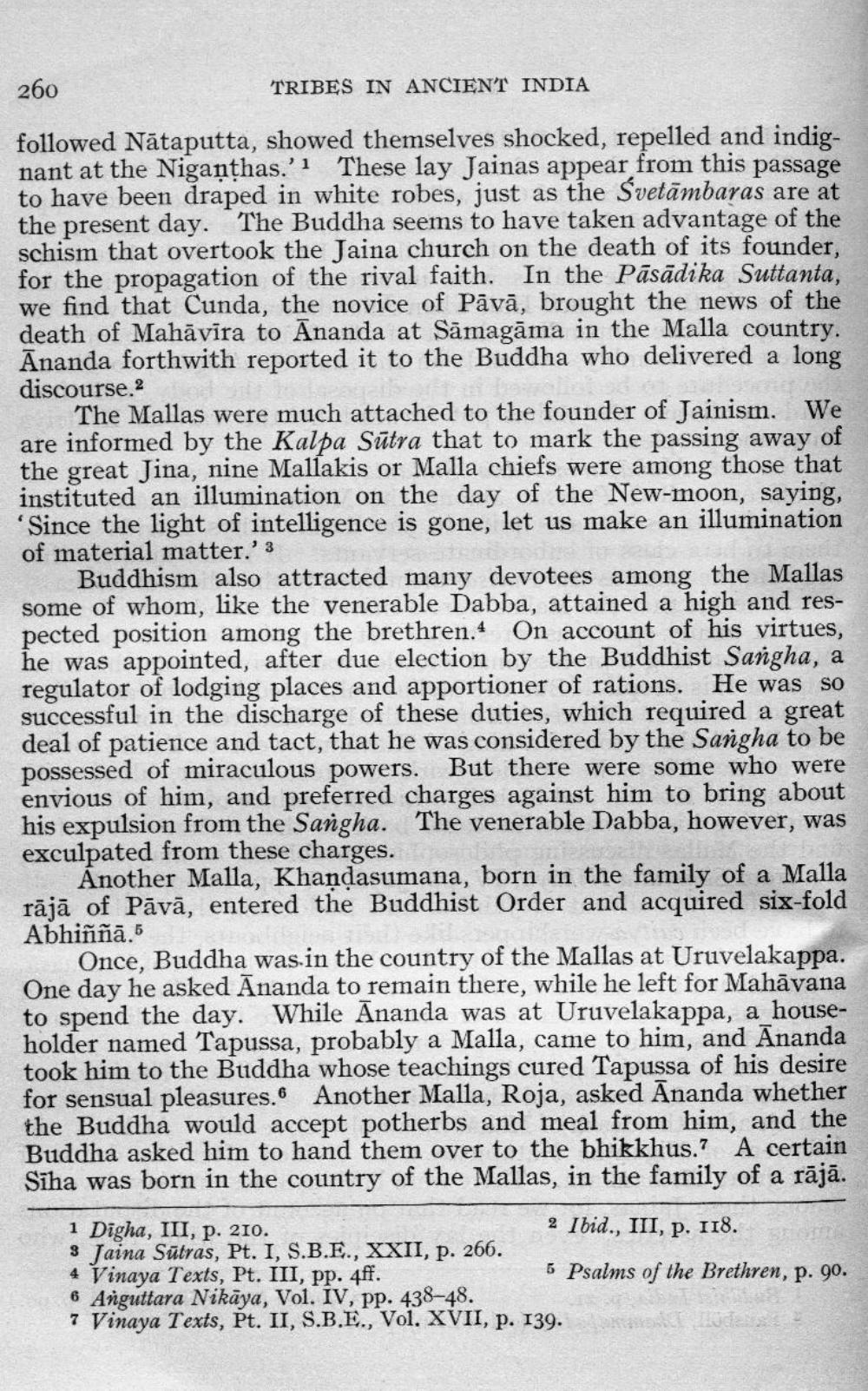________________
260
TRIBES IN ANCIENT INDIA
followed Nātaputta, showed themselves shocked, repelled and indignant at the Niganthas.'i These lay Jainas appear from this passage to have been draped in white robes, just as the Svetāmbaras are at the present day. The Buddha seems to have taken advantage of the schism that overtook the Jaina church on the death of its founder, for the propagation of the rival faith. In the Pāsādika Suttanta, we find that Cunda, the novice of Pāvā, brought the news of the death of Mahāvīra to Ananda at Sāmagāma in the Malla country. Ananda forthwith reported it to the Buddha who delivered a long discourse.2
The Mallas were much attached to the founder of Jainism. We are informed by the Kalpa Sūtra that to mark the passing away of the great Jina, nine Mallakis or Malla chiefs were among those that instituted an illumination on the day of the New-moon, saying, Since the light of intelligence is gone, let us make an illumination of material matter.'3
Buddhism also attracted many devotees among the Mallas some of whom, like the venerable Dabba, attained a high and respected position among the brethren. 4 On account of his virtues. he was appointed after due election by the Buddhist Sangha, a regulator of lodging places and apportioner of rations. He was so successful in the discharge of these duties, which required a great deal of patience and tact, that he was considered by the Sangha to be possessed of miraculous powers. But there were some who were envious of him, and preferred charges against him to bring about his expulsion from the Sangha. The venerable Dabba, however, was exculpated from these charges.
Another Malla, Khandasumana, born in the family of a Malla rājā of Pāvā, entered the Buddhist Order and acquired six-fold Abhiññā.
Once, Buddha was in the country of the Mallas at Uruvelakappa. One day he asked Ananda to remain there, while he left for Mahāvana to spend the day. While Ananda was at Uruvelakappa, a householder named Tapussa, probably a Malla, came to him, and Ananda took him to the Buddha whose teachings cured Tapussa of his desire for sensual pleasures. Another Malla, Roja, asked Ananda whether the Buddha would accept potherbs and meal from him, and the Buddha asked him to hand them over to the bhikkhus.? A certain Sīha was born in the country of the Mallas, in the family of a rājā.
1 Digha, III, p. 210.
2 Ibid., III, p. 118. 3 Jaina Sūtras, Pt. I, S.B.E., XXII, p. 266. 4 Vinaya Texts, Pt. III, pp. 4ff.
6 Psalms of the Brethren, p. 90. 6 Anguttara Nikaya, Vol. IV, pp. 438-48. 7 Vinaya Texts, Pt. II, S.B.E., Vol. XVII, p. 139.




